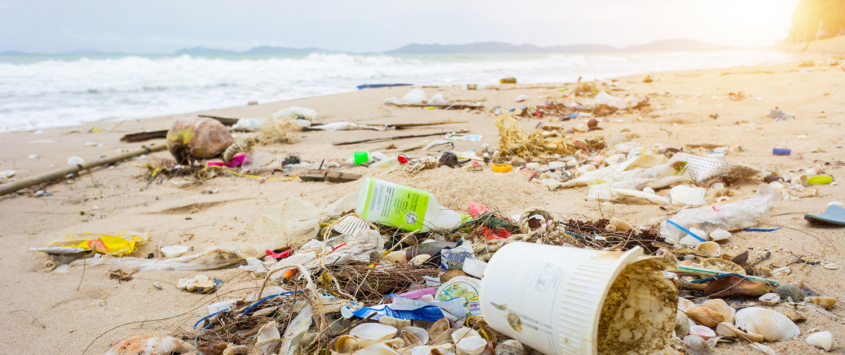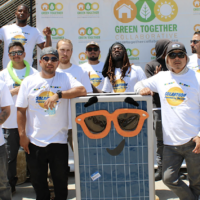UCLA Study on Plastic Waste in L.A. County Will Inform Ordinance Research shows that recycling is not a panacea for plastic waste problem and finds that reusable alternatives can be cost-effective
By Colleen Callahan
A new report by the UCLA Luskin Center for Innovation (LCI) that highlights impacts of plastic production and waste in Los Angeles County will benefit the county in drafting an ordinance addressing plastic waste.
“One of the findings from the report that may surprise Angelenos is that a majority of plastic waste in L.A. County is not currently recycled,” said Gary Gero, the county’s chief sustainability officer. “This is just part of the problem behind the environmental, economic, energy and human-health-related impacts associated with plastic production and waste in L.A. County, which this study clearly reveals.”
The report also analyzes alternative options in food service and singles out single-use plastic food service waste for its outsized representation in litter and its low recycling potential. No facility in L.A. County currently recycles plastic food service ware because of concerns about food contamination and other issues. After a policy change from China in 2018 to limit recyclable waste materials accepted by that country, only #1 and #2 plastics are commonly recycled.
“Fortunately, there are alternatives to plastic containers, cups, straws and ‘sporks’ that make practical and economic sense,” said JR DeShazo, the principal investigator on the study and director of the UCLA Luskin Center for Innovation. “Solutions are on hand, as the report makes abundantly clear.”
Researchers found that compostable ware can reduce environmental impacts as compared to plastic. But the report also explains that a full transition to compostable ware across the region would need to be approached carefully.
For one, it would require an expansion of the currently limited composting infrastructure in L.A. County. Fortunately, state regulations are in place to mandate this expansion over the next few years and the county is actively working toward meeting those state targets. In addition, a larger transition to compostable ware would require thoughtful consideration of materials in order to select products with a lower lifetime environmental impact as compared to plastic. Compostable products that are 100% fiber-based without chemical treatment produce the best environmental outcome.
No disposable ware can beat the environmental footprint of reusable food service ware, researchers found. Moving to reusables in place of disposables represents a large shift for many food vendors, with higher up-front costs but lower expenditures over time.
The fiscal break-even point for businesses can generally occur within the first year of transition, with direct cost savings for businesses afterward totaling thousands of dollars per year, according to the study.
“It was heartening to see the conclusions related to economic impacts of moving our businesses to more sustainable materials,” Gero said. “It’s also relatively easy for us, as individuals, to do something about it — like bringing our own cups, straws and utensils when we dine at a fast-service type of restaurant.”
In California, 135 cities and counties have adopted ordinances related to single-use plastic reduction. Researchers interviewed officials from eight of those cities, mostly in L.A. County.
The experiences of these jurisdictions indicate that policies restricting plastics have been effective at reducing the adverse impacts of plastic waste with no reported negative economic impacts. These jurisdictions have provided avenues for vendors to claim exemptions for financial hardship, but the rate at which vendors have applied for such exemptions is very low, the study notes.
The Los Angeles County Chief Sustainability Office commissioned the study, per a motion by county supervisors directing the office to contract with UCLA to study the issue of plastic waste, processing, recyclability and alternatives in the county. The motion came after supervisors earlier in 2019 approved the OurCounty Sustainability Plan, a comprehensive approach to help L.A. County transition to a more sustainable future through actions that include plastic waste reduction. The county plans to release its draft ordinance later in 2020.






Please give me the name and email people I contact about this issue. Thank you! Also, have a great holiday season.